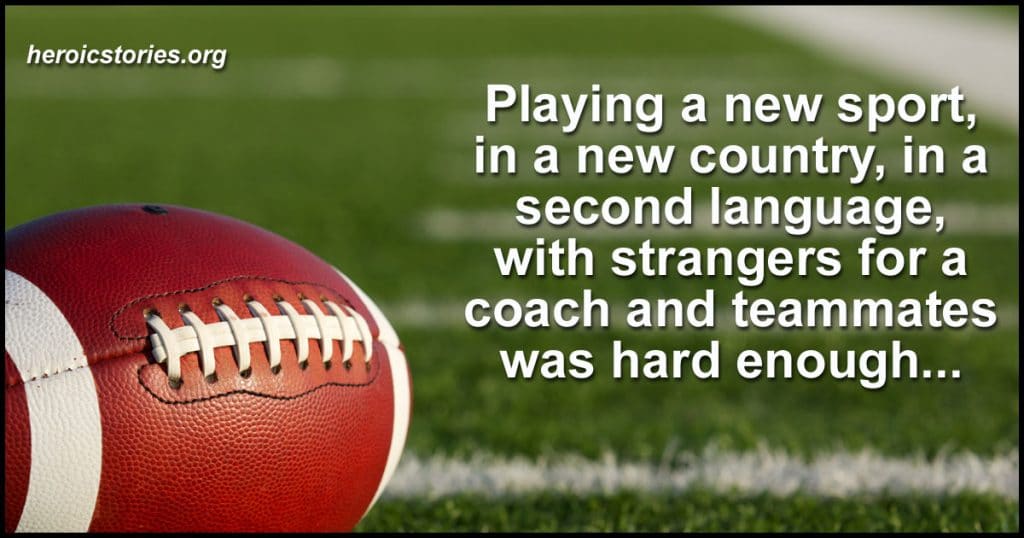by Chris Kennedy
California, USA

In the fall of 2010, I coached a fourth grade boys’ football team in California.
The boys were excited to play, including a boy whose family had just moved to America. Understandably, he had limited knowledge about American football… and by “limited,” I mean “none whatsoever.”
“Bill” was challenging. He showed up late without cleats, mouth guard, or practice uniform. Playing a new sport, in a new country, in a second language, with strangers for a coach and teammates was hard enough. He also had to fit into an ultra-competitive group of boys, who weren’t shy about pointing out mistakes. “Come on, you can’t line up off sides, Bill!”
Bill increased the workload I was already struggling to carry. I spoke slowly, instructed him individually on virtually every play…and still he often did things incorrectly.
I limited his playing time in games because everything moves more quickly. Despite his lack of understanding, Bill always asked to go in.
Bill’s father wrote, concerned Bill wasn’t learning enough because of limited playing time. I explained Bill had learning time at practice — daily. Managing his game time was for his own sake and survival. With greater achievements he’d get more playing time…an expectation of every team member. His father understood… and Bill was beginning to. Even if he was blocking illegally, Bill seemed to find the joy football brings to a kid.
In our final game I increased Bill’s playing time. On one drive, he was penalized four times for jumping off sides. But he was trying hard. Towards the game’s end, I put Bill at running back to give him the first carry of his career. “Dive Right.”
The quarterback’s eyes brightened. A few teammates on the sideline overheard, and cheered. A parent walked over, “I don’t know what you just called but it must be something special.”
The quarterback sprinted into the huddle with the play. Bill and a few teammates reared their heads back and looked at me with disbelief. Wide smiles nearly made their mouth guards drop.
The boys rushed to the line. Bill lined up correctly. He received the ball — no fumble — and ran through a large hole created by his teammates blocking with all their might. Bill ran as fast as his excited body could for a five-yard gain. A large cheer erupted!
His teammates ran to congratulate and guide Bill back to the huddle. The quarterback sprinted over, “That play worked coach! Can we do it again?” Then the game clock expired. We’d won by a touchdown.
Many parents said the boys’ reaction to Bill running the ball was the season’s best moment. One said, “They looked like a team.”
A team. At every practice, every game, every teachable moment, I endeavored to impart the importance of teamwork. To be unselfish, sacrifice, and strive for something impossible to attain individually. Working together can defeat any barrier.
Bill needed our help to become a football player. We needed his to become a team.
Podcast: Play in new window | Download (Duration: 4:36 — 2.2MB)


I had to chuckle when I read this story. My grandson and his family had moved to Mexico and All three boys were enrolled in a Spanish speaking school there where they did not speak a word of Spanish. He was six years old and on the soccer team. He came home and said the coach was very angry during practice yelling and he did not understand a word he said. My daughter asked him “was he yelling at you? “My grandson replied “how would I know he was looking at all of us. “. Later back in the States when he was involved in a major soccer tournament in schools here in the United States he was sitting near a team who were speaking Spanish not knowing he was fluent in Spanish. The players and their coach were describing what they were going to do to certain players to take them out of the game. My grandson reported this to the referees. Eventually as the referees saw the dirty tricks they were asked to leave the tournament.